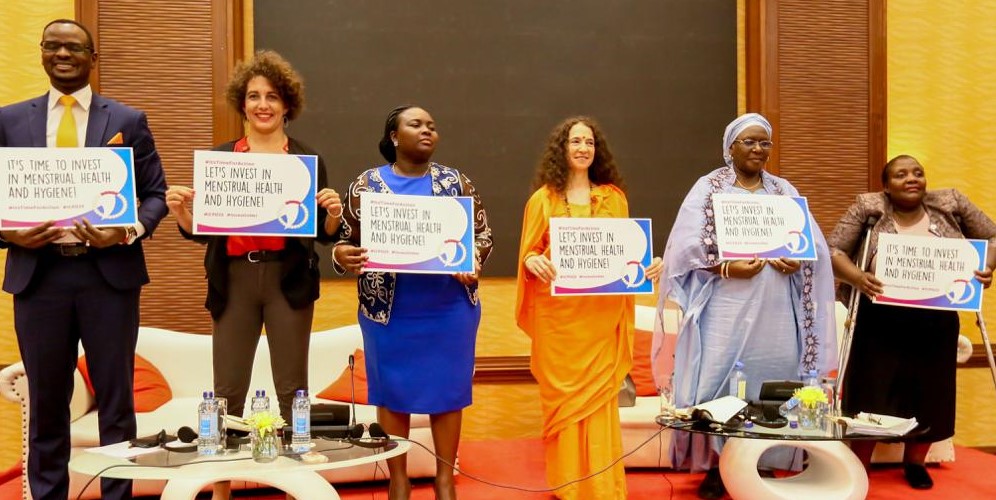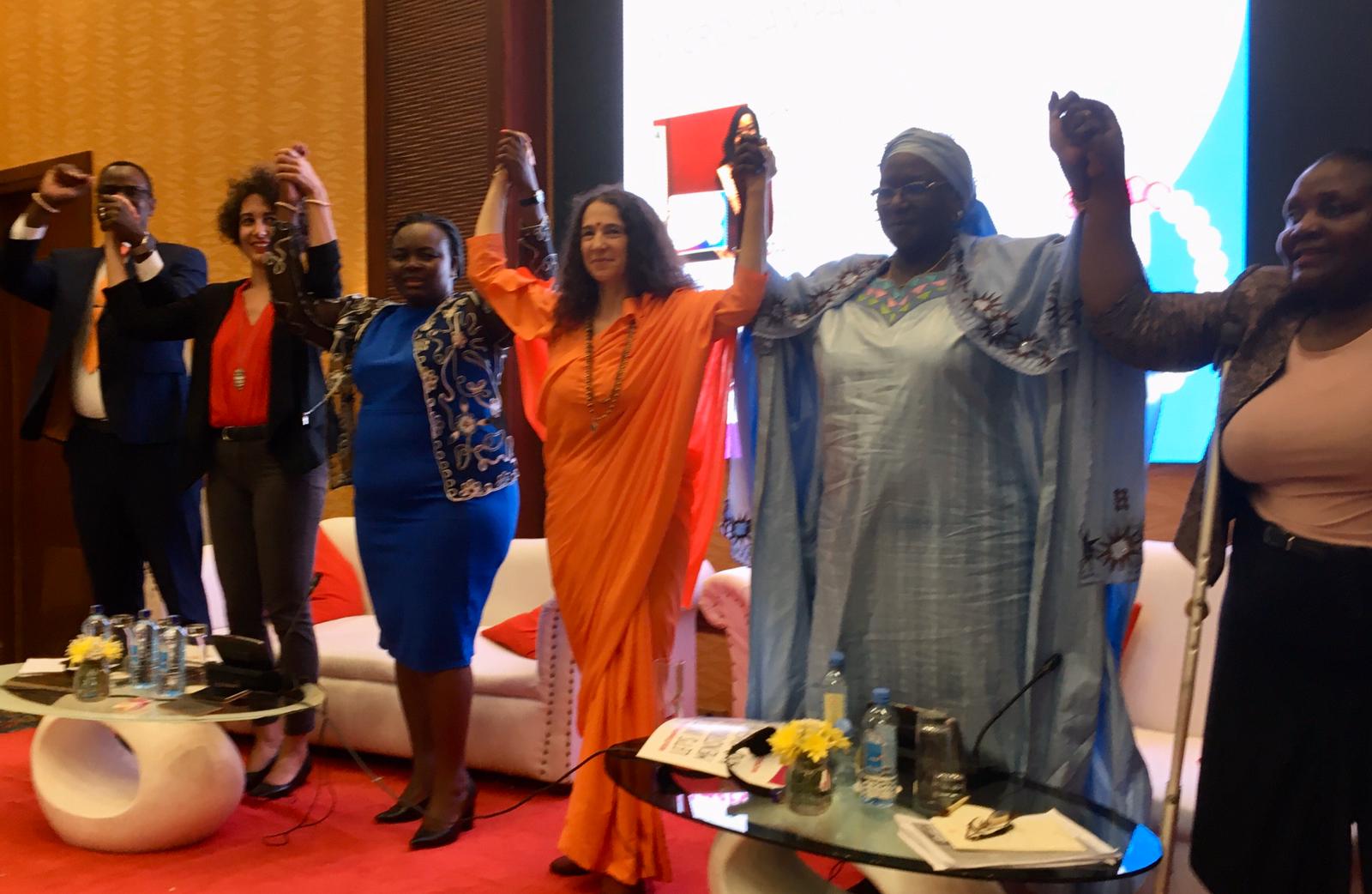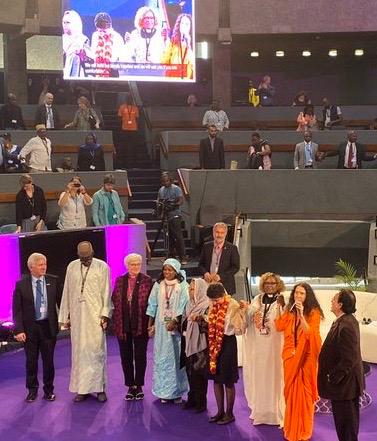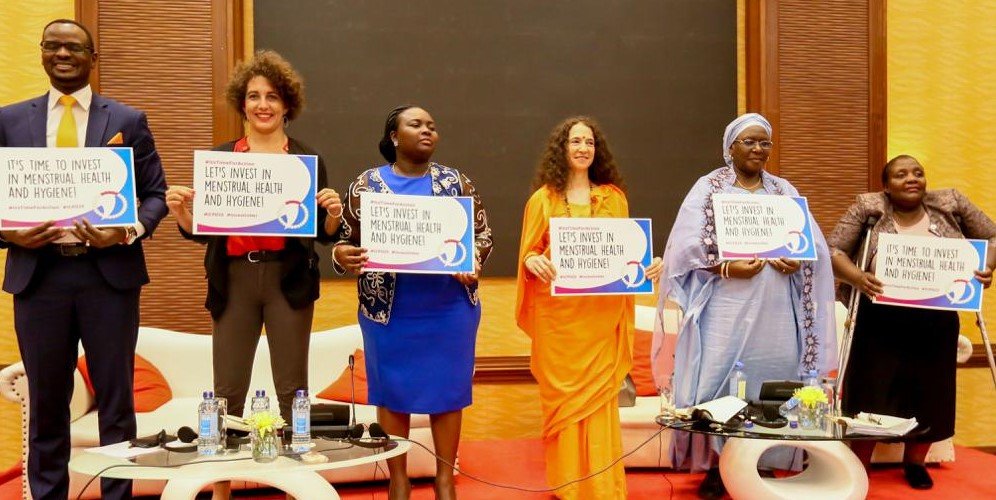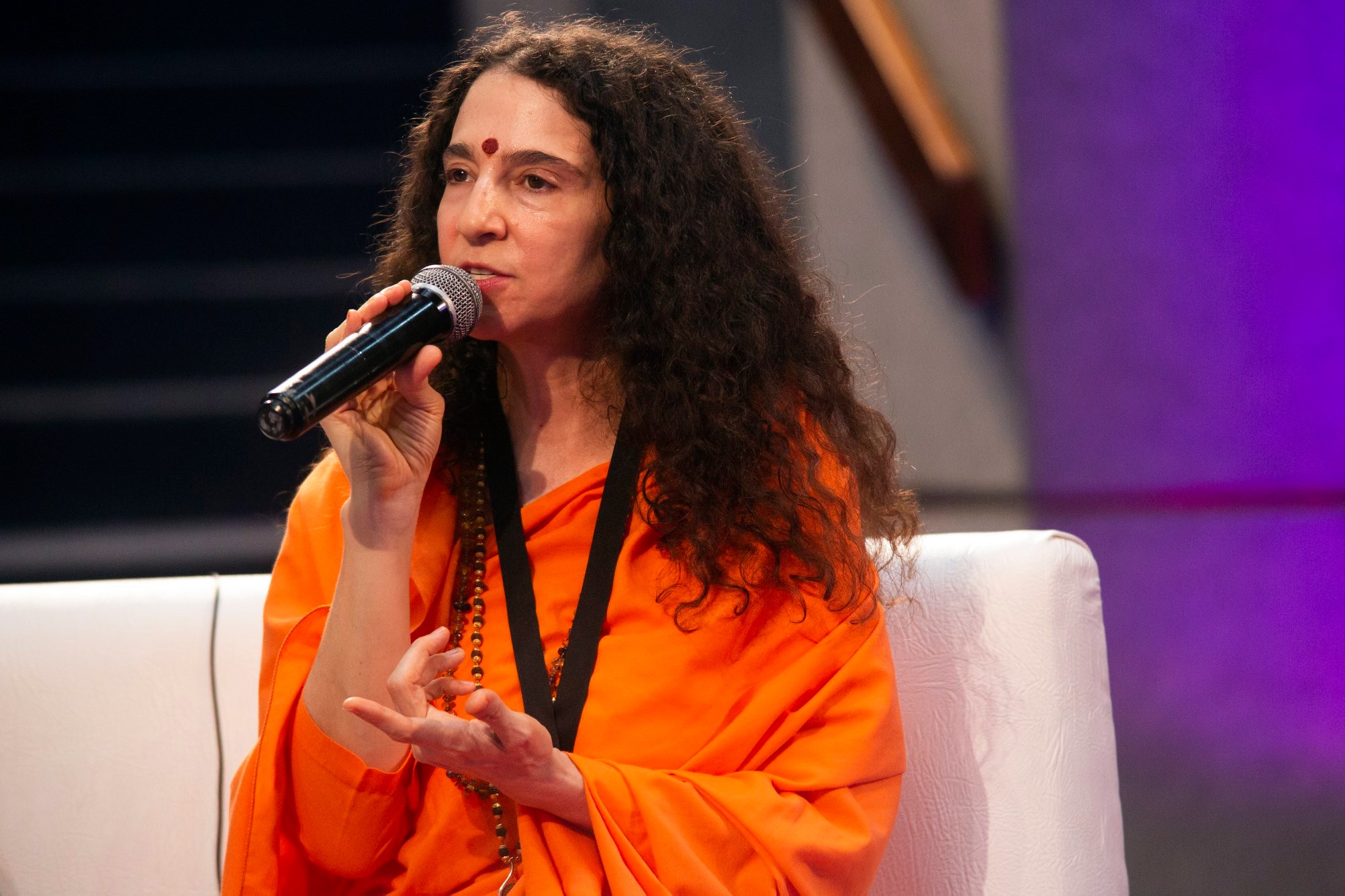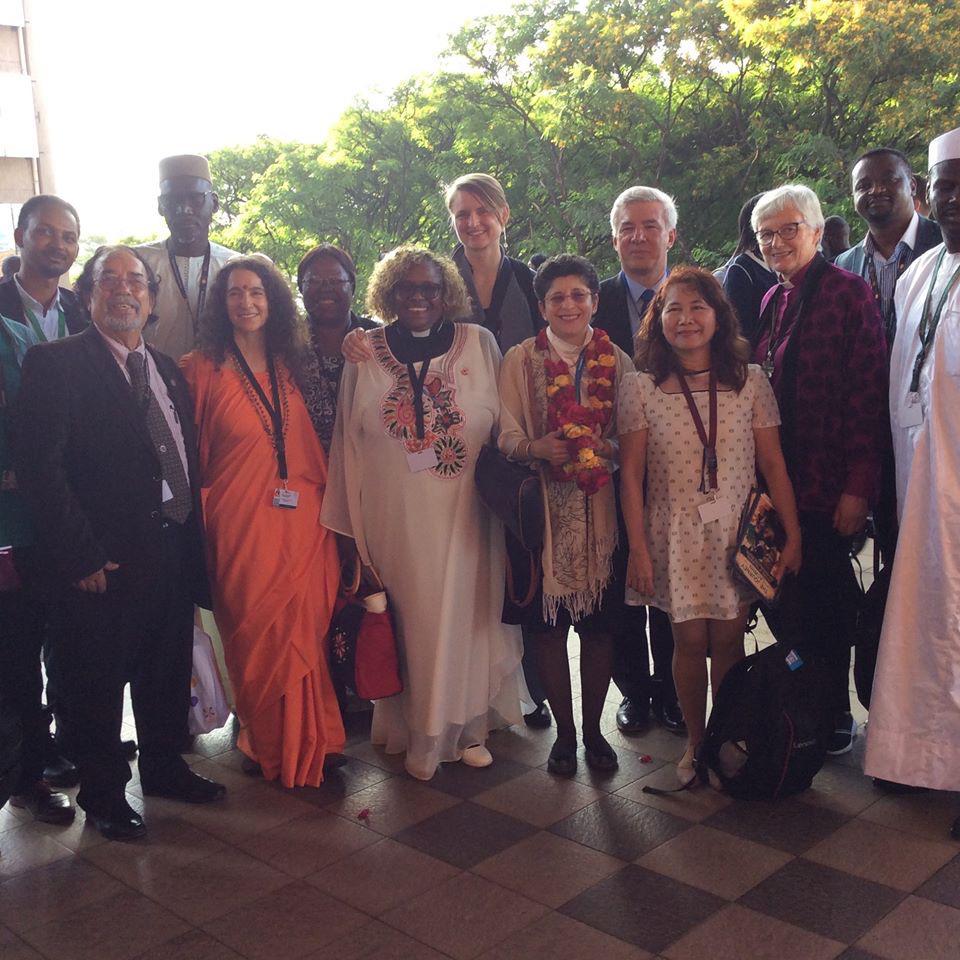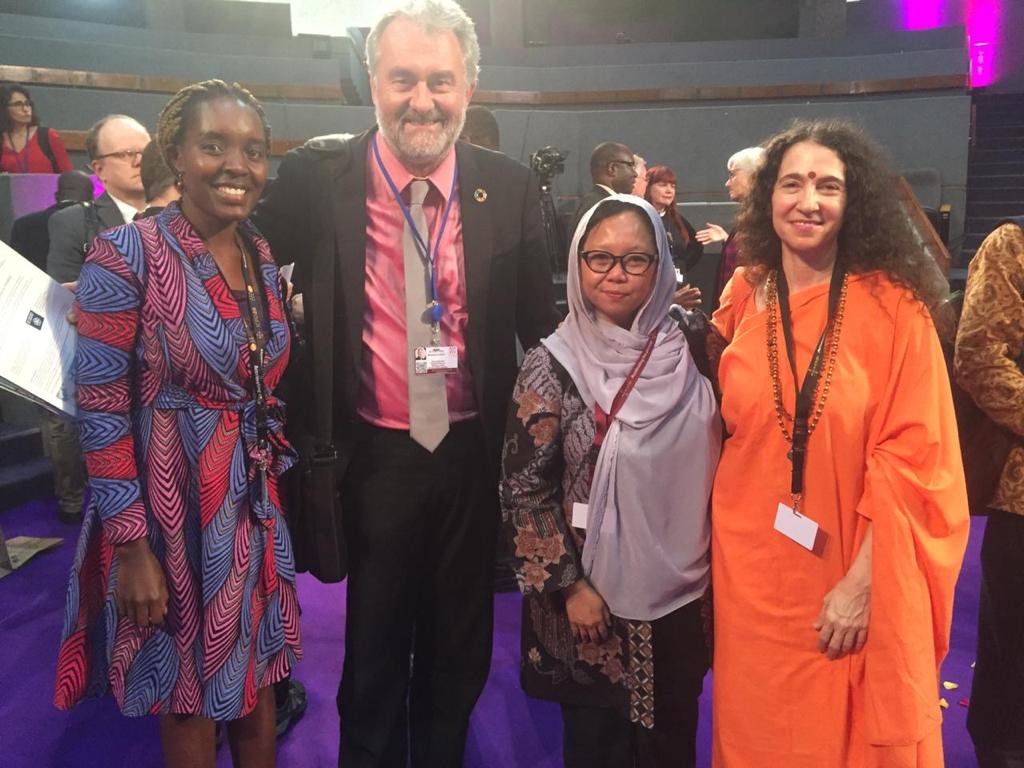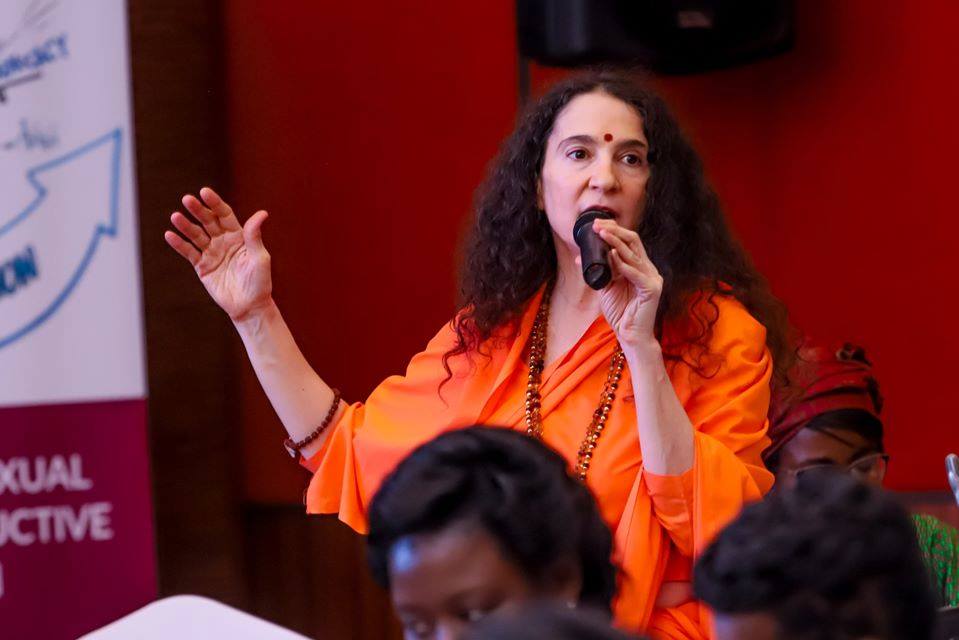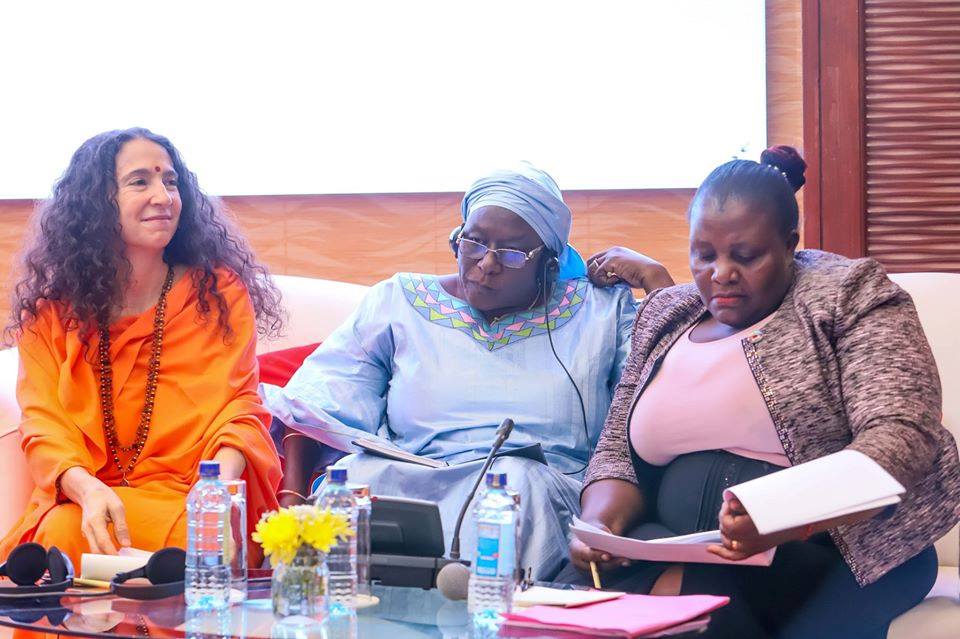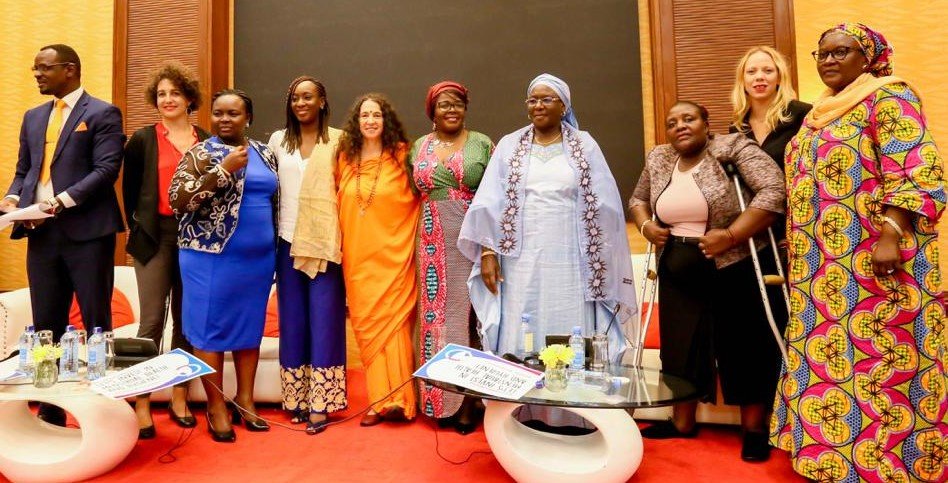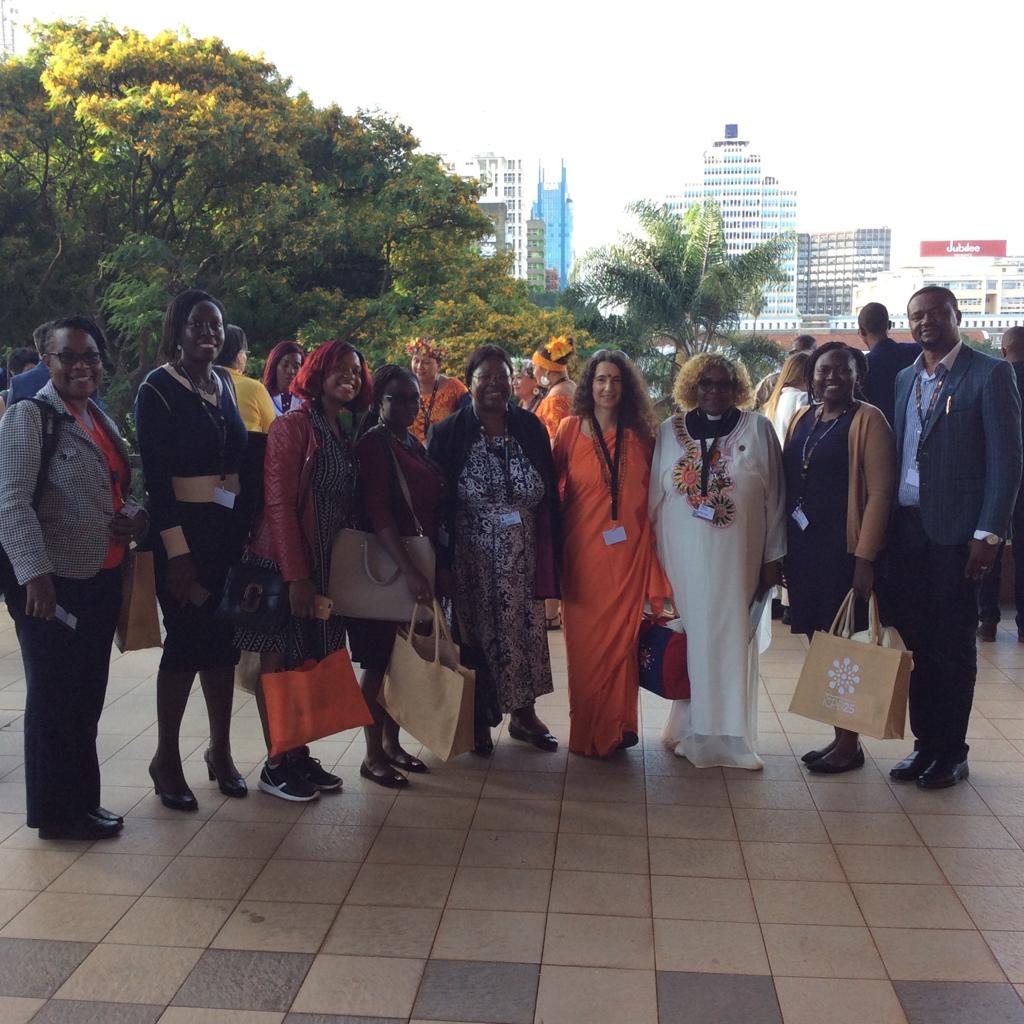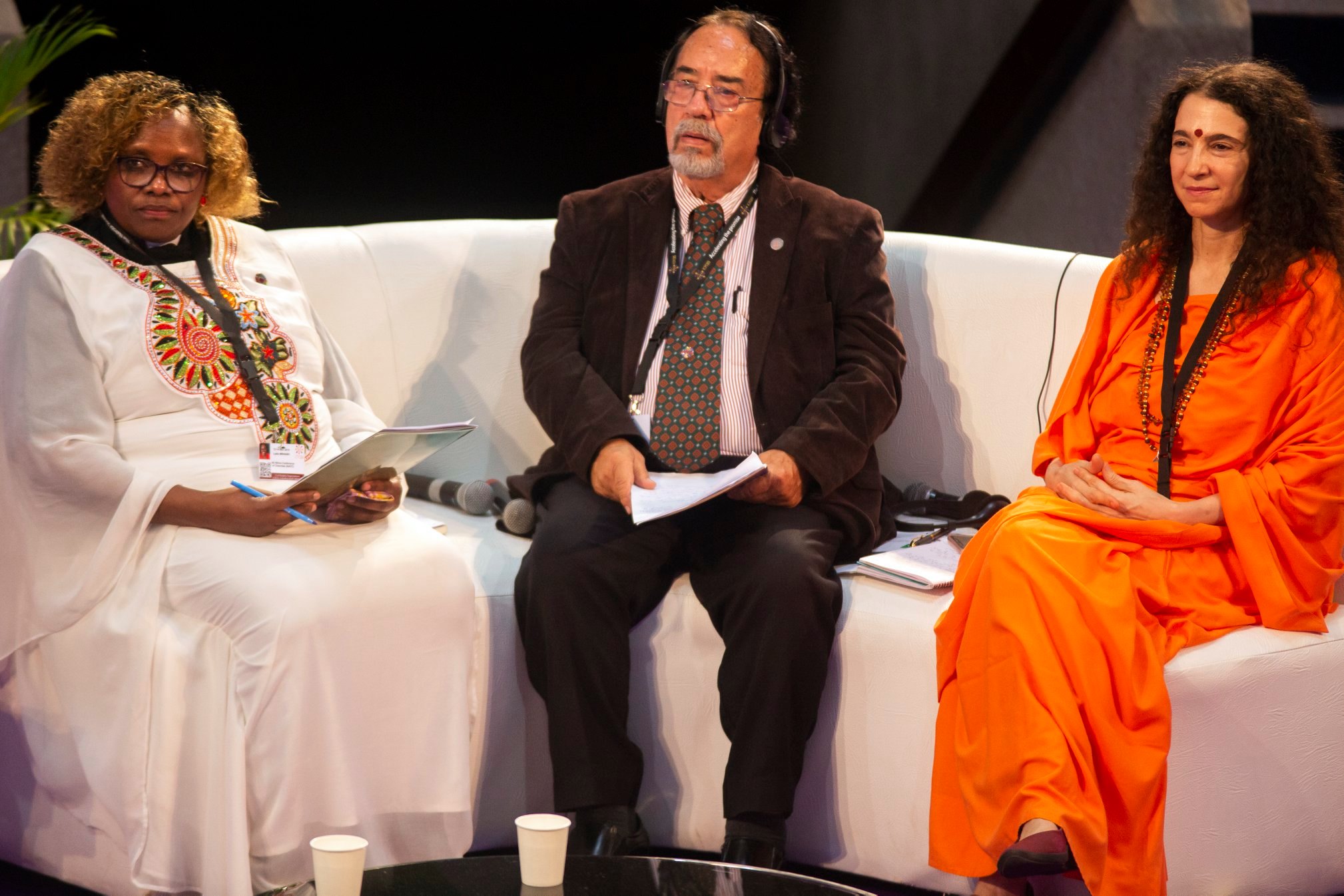Sadhvi Bhagawatiji Participates in ICPD25 Nairobi Summit
November 13, 2019
Offers traditional Hindu philosophy as solution to growing population rate and need for sustainable growth and development at UN’s International Conference on Population and Development in Nairobi Kenya
Secretary-General of the Global Interfaith WASH Alliance and President of the Divine Shakti Foundation, Sadhvi Bhagawati Saraswatiji, traveled to Nairobi, Kenya to participate in the United Nations’ International Summit on Population and Development under the auspices of the United Nations Population Fund. Heads of State, United Nations’ high-level representatives, heads of international civil society, organizations and faith-based organiztions joined more than 9500 participants from 170 countries.
The conference focused primarily on the development of women and children – their health, security and rights – as well as ways to develop sustainable economic growth while protecting, preserving and conserving the environment.
This is the 25th anniversary of the first ICPD held in Cairo, Egypt in 1994.
Sadhvi Bhagwati Saraswati, representing India and the Hindu faith, addressed two sessions. In the first, a panel discussion entitled “Inclusive Sexual and Reproductive Health and Rights (SRHR) – Accelerating Menstrual Health at ICPD25 & Beyond” organized and led by the Water Supply and Sanitation Collaborative Council (WSSCC), Water Aid, WASH United and the African Coalition for Menstrual Health Management, high-level officials from government, the United Nations, academia, CSOs & FBOs came together across sectors to advocate for MHM, and Sadhviji shared the exciting recent work of the Global Interfaith WASH Alliance to end taboos around menstruation and to normalize menstrual hygiene the way they have been working so successfully for so many years to change beliefs and behaviors around open defecation. Sadhviji led a pledge by these leaders and all those in the audience to work together across races, religions and regions to end the restrictive issues around SRHR and the taboos around menstruation so that women and girls can have health, safety and empowerment.
The second session, “Keeping the Faith in Sexual and Reproductive Health and Rights,” was a panel discussion featuring interfaith leaders from Africa, Europe, Indonesia, South America and India and focusing on Faith-Based Organizations’ (FBOs’) role in both creating the stigma around SRHR and finding solutions to end that stigma. In her remarks, Sadhviji shared that “the thing that is most needed, whether looking at SRHRs or any of the SDGs (Sustainable Development Goals) is truly for everyone to come together and to have leaders in all sectors who truly are giving their breath, their life and their hearts to bring about change.”
Great joy to begin participation in #ICPD25 @NairobiSummit w/event by @WSSCCouncil @WASHUnited @wateraid & #Africa Govt officials to advocate for #MHM. I shared the work of our @wash_alliance to end taboos around #menstruation & normalize #menstruationmatters #itstimeforaction pic.twitter.com/V30sui0C3z
— Sadhvi Bhagawati (@SadhviBhagawati) November 12, 2019
Sadhviji also shared about how the Global Interfaith WASH Alliance is harnessing the power of faith to bring about a change in how people think and therefore how they act regarding women’s and girls’ rights, including issues like early child marriage and menstruation. She said, “Given that the average woman spends 7 years menstruating, if you were sending your sister or daughter or wife somewhere for 7 years, wouldn’t you make absolutely sure it was as safe, healthy and comfortable as possible? So we must ensure menstrual health for all!”
Sadhviji explained that, “When we started working on these two subjects, menstruation and open defecation, people did not like any religious organization to talk about them. Gradually, under the leadership of Pujya Swami Chidanand Saraswati ji, the religious leaders came together and started to openly discuss these topics and make people aware the campaign has been superbly successful. Now, the same effort is to openly discuss menstrual safety and break our silence so that our sisters and daughters can be provided a safe environment.
She shared, “Typically in India, when girls are on their period, they colloquially say, ‘I’m down.’ Now our effort is to make them say ‘I am up’ during menstruation. There is nothing to be down about! God has given girls the power to create life, and they should be proud of the part they play in the beautiful cycle of life.”
Sadhviji also led a pledge at the close of the Keeping the Faith session, leading the speakers and audience to commit to working and walking together for rights for women and girls. She declared that we can only achieve the necessary change in thought and behavior when we all come together. “From stages to porches, from round-tables to dining tables,” she said, “For our women and our girls and our societies and our planet, we must stand together as one, with a common and united goal.”
This important international conference included participation from: Kenyan President Uhuru Muigai Kenyatta; Bill Gates’ wife Melinda Gates; United Nations Population Fund Executive Director Dr. Natalia Kanem; Deputy Secretary-General of the UN, Amina Mohammed; UN Women Executive Director, Phumzile Mlambo-Ngcuka; Her Majesty Queen Mother Gyaliam Sangay Choden Wangchuk of Bhutan; Denmark’s Crown Princess Mary; former Chilean President and the High Commissioner for Human Rights, Michelle Bachelet; and Debashree Chaudhary, India’s Minister of State for Women and Child Development, in addition to Rudelmar Bueno de Faria, Secretary-General ACT Alliance; Ärkebiskop Antje Jackelén, Archbishop of Sweden, Church of Sweden; Alissa Wahid, National Director Nahdatul Ulama; Rev. Dr. Ms. Lydia Mwaniki, Director, All Africa Conference of Churches; Rev. Carlos Tamez, Director, Latin American Council of Churches; Dr Hana Albanna, Cardiff Metropolitan University; and; Azza Karam, Senior Advisor Culture UNFPA and Secretary-General Elect Religions for Peace International.
“The way to make them change is to normalize that which is held at arms distance. The same way we’ve normalized defecation, we should also do the same to menstruation.” – Pujya Sarawatiji, Global Interfaith WASH Alliance #menstruationmatters #ICPD25 #MenstrualHealth @WSSCCouncil pic.twitter.com/EbQAjdBpIj
— Kevin Mwanza (@kainvestor) November 11, 2019
“The same way we have normalized defecation, we should also do the same with menstruation.” says @SadhviBhagawati
Secretary General, Global Interfaith WASH Alliance #menstruationmatters #itstimeforaction #ICPD25 #MenstrualHealth @PujyaSwamiji @wash_alliance @UNFPA@thecaseforher pic.twitter.com/TZNCtvxg7Q— WSSCC (@WSSCCouncil) November 11, 2019
Panelists discuss how culture and lack of commitment on Menstrual Health Management is affecting women productivity at home and at the office. #menstruationmatters #itstimeforaction #ICPD25 #Investinher #MenstrualHealth #MenstrualHygiene @UNFPA @UNFPA_ESARO @NairobiSummit pic.twitter.com/gx6B99i4c7
— WSSCC (@WSSCCouncil) November 11, 2019



